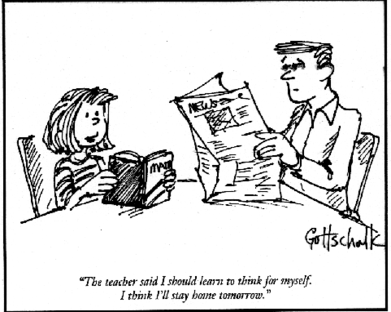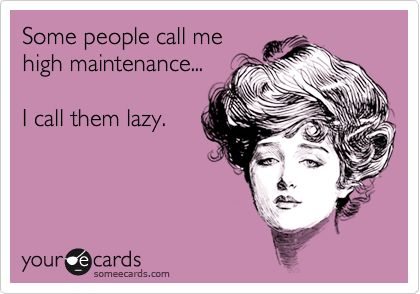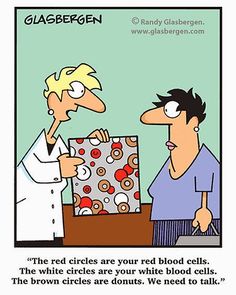 Few people think more than two or three times a year. I have made an international reputation for myself by thinking once or twice a week. George Bernard Shaw
Few people think more than two or three times a year. I have made an international reputation for myself by thinking once or twice a week. George Bernard Shaw
When was the last time you devoted 60 minutes to pure, unadulterated, focused thinking? Well, that’s been too long.
May I suggest:
Discover your ideal time and place to think by yourself
Mid-morning to early afternoon I’m usually in a get-it-done mode which is not conducive to reflection. My to-do list beckons. My best time to think is early morning (5:00-7:00 a.m.) or early evening (6:00-8:00 p.m.). Also, after I exercise, my body is exhausted but my mind is active, so that’s a prime time for me to think.
I think best in a totally quiet, uninterrupted environment. No music, conversation, or extraneous noise.
Think with others
I truly enjoy discussing significant thoughts with intelligent, reflective people. I usually have to initiate this type of conversation—they don’t happen by chance; but if you get the right people talking about an interesting topic the rewards can be good. I have written a post about different levels of conversations Upgrade your conversations; talk about ideas.
What to think about
Explore new thoughts
Don’t just replay old mind-tapes. Once you’ve had a thought, there’s no benefit in thinking it again unless it gives you pleasure (and even then, don’t overdo it). Pursue thoughts you’ve never had before.
Think about how to apply theory to your life
I enjoy learning a new theory/principle and applying it to my life.
For instance, I was recently thinking about what psychologists call a double avoidance situation, where someone is forced to choose between two undesirable alternatives. The classic example is imagining that you are in a tunnel that you need to get out of; at one end is a rabid dog, at the other end is a man with a whip. (Most people feel like the 2016 presidential election was a double avoidance situation.)
Part of my reflection focused on if and how I might be personally involved in a double avoidance situation and if so, how to escape, and how to avoid getting into this type of predicament.
Think about significant thoughts
In my post Embrace significant thoughts, I talk about the value of reflecting on key thoughts. Find a phrase that appears to have depth and take a dive. Several years ago I memorized Federico Fellini’s statement, “I want to live so that my life cannot be ruined by a single phone call” and have ruminated on it often. It has matured in my mind such that I have written a blog—Diversify—that I’ll post several weeks from now.
Where do important topics come from?
In my post Cultivate your intellectual nutrient base I encouraged you to identify sources that nourish the mind. Just as we all have a biological nutrient base—we routinely digest a suitable and adequate amount of physical nourishment—we need an intellectual nutrient base. On a regular basis, feast on proven sources of “food for thought” and you’ll never lack for interesting things to think about.
[reminder]What are your thoughts about this essay?[/reminder]

 She’s the bride at every wedding and the corpse at every funeral.
She’s the bride at every wedding and the corpse at every funeral. The average US adult weighs about 25 pounds more today than a few decades ago. That’s like hanging three plastic gallon jugs full of milk around your neck. That can’t be a good thing.
The average US adult weighs about 25 pounds more today than a few decades ago. That’s like hanging three plastic gallon jugs full of milk around your neck. That can’t be a good thing.